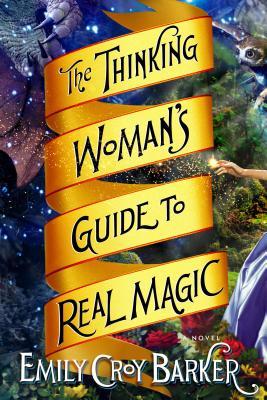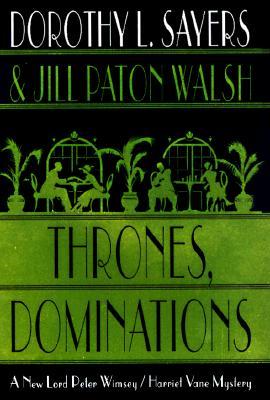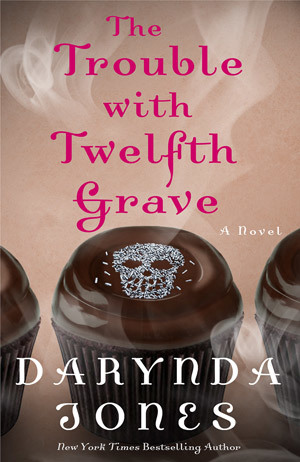I received this book for free from the library in exchange for an honest review. This does not affect my opinion of the book or the content of my review.
Source: the library
The Thinking Woman's Guide to Real Magic
by
Emily Croy Barker
in Hardcover edition that was published by Pamela Dorman Books on August 1, 2013 and has 563 pages.
Explore it on Goodreads or Amazon
This is definitely the start of a fantasy series. I suspect Barker is “holding her breath” in terms of continuing as her publisher waits to see if this story does well. I hope it does — it is a Goodreads Choice Nominee for Fantasy in 2013. I just gots ta know what happens next!
My Take
I enjoyed this very much. It starts out feeling like Deborah Harkness’ All Souls Trilogy series, but quickly veers into fantasy when Nora exits this world on the basis of a wish. It has a lightweight quality, but it certainly isn’t juvenile in spite of it being a little bit Narnia, a little bit All Souls, and bearing a kinship to Mercedes Lackey and Rosemary Edghill’s Bedlam’s Bard, Seanan Maguire’s October Daye, Richelle Mead’s Dark Swan, Karen Marie Moning’s Fever, and Allison Pang’s Abby Sinclair.
Nora is the main story with Arundiel’s past coming to light in bits and pieces, allowing us to learn more about his world and its customs. I do like hearing about a magic that doesn’t wear one out or have to be husbanded. It gives Arundiel, and later Nora, the opportunity to do lots of small good throughout the story. It feels more real than the great magics. The Faitorens’ magic seems to be different. More one of illusion and compulsion. It’s certainly a come-down for them from their magnificent beginning.
I am annoyed that I can’t tell where she begins. It could be England or America, although the mention of Asheville makes me think North Carolina. What college is she attending? If faerie food has no substance, and Hirizjahkinis is so very hungry after her three days, why isn’t Nora MUCH hungrier after all the time she’s spent with them? Why doesn’t Nora ever question that voice in her head?
The reasoning behind the demon names is too funny, and yet it does make sense. After all, how would they know about human culture? I like Barker’s reason for how magic works too. It’s a very empathic science.
Barker makes great use of all sorts of incidents of aid, judgment, translation, and conceit to give us a sense of Nora, of Arundiel, and his world. The woman whose child was eaten and the incident of the cobbler are two of the most memorable. I certainly don’t see why Arundiel had to make such a fuss about that last one. It was his own fault.
Arundiel annoys me often. He’s so judgmental of Nora, of her speech and her grammar, when she’s only now learning his language, about his culture, and about magic. He has no patience, and it’s not fair. I shouldn’t have thought him so insecure. But perhaps he’s simply too grand to remember his own first days.
LOL, Nora eventually learns that William Carlos Williams’ poetry is what it takes to satiate an ice demon. I’m also curious to know if Barker plans to use Arundiel’s weakness at math sometime. I do hope Barker plans a second installment. We’ve been left at the gate, so to speak, and I want to open it again.
The Story
Angry with how her life is unraveling, Nora takes a walk into the mountains, a walk that takes her much further than she knows. It’s hard for a scholar like her to be adrift in such a world as Arundiel’s, especially after her sojourn amongst the Faitoren.
She can’t read the language, women are second class citizen with a grammar specifically for them, and Arundiel’s life is a mystery of magic. One she wants to understand.
Then there are the Faitoren. There’s supposed to be a treaty in place, one which the Faitoren ignore as they please. Just look to Nora and how they treated her!
The Characters
Nora Fischer is human and working on her thesis about John Donne. Only, she’s stuck. EJ is the older brother who died. Her mother is remarried while her father is married to Kathy, and they have two daughters: Leigh and Ramona, the younger half-sister.
Lord Arundiel is a magician, a relatively old one, whose magic makes him younger. In his much younger days, he was an aide-de-camp to Lord Burs of Klevis. Lady Lusarniev Arundielan was his wife, who brought the Lusul estate as her dowry. Melinderic was a knight and Arundiel’s friend and principal deputy on the estate. His siblings were Atl Aruendies, the oldest son; then Arundic, a sister who married the Duke of Forel; and then, Arundiel. He was sent away to wizard school with Old Naxt first, and then to Lord Burs. Lady Pusieuv Negin of Forel is his grand-niece. Mrs. Ulunip Toristel keeps his house and cooks while Mr. Toristel takes care of most outside chores. Lolona is their daughter who married a brewer. Wurga is a portrait that becomes very angry.
Other magicians include…
…Lady Hirizjahkinis is a close friend, although Arundiel disapproves of Kavareen, a demon spirit with whom she consorts. Micher Samle has made a study of thin places where worlds touch. I’m wondering if he’s Farmer Dahmer. Nansis Abora was the peasant boy at Old Naxt’s. Norsn. Klexin Ornasorn claims to have discovered the Blueskin observation spell. The one Nora and Arundiel use to visit Nora’s sister. Euren the Wolf is reclusive, and one of the magicians to help bring Arundiel back to life. Dorneng Hul is fascinated by Faitoren magic and goes to guard the border. Hirgus Ext the Shorn is really a wizard, a bald one. Yes, Barker has a lovely distinction between magicians and wizards as well. Setting us up for the next in the series.
In Arundiel’s village…
…Losi does laundry. Morinen is Corlil’s daughter and a great bargainer, Resk is one of her brothers, and I think Fori is their mother. Those with broken pottery include Caddo, who is Big Faris‘ wife; Aunt Narl gives yarn; Pelinen is a widow with cows; Trouteye has a lot of busted pots; Porsn is the tanner; Blue Dove does a lovely blackberry wine; Lus; and, Ferret is Morinen’s second cousin and likely to hang. Bitar runs the general store.
The case of the eaten daughter
Massy is the mother of Gissy, Sova, Horl, her oldest son, are from an earlier marriage. Now, she’s married to Irseln‘s father, Rorpin. Short Bernl is a pedophile and the accused.
Semr is where…
…King Abele IV’s seat is located. Lady Inristian is Nora’s roommate in Semr, and she’s desperate for a marriage alliance. Baroness Fulvishin and Soristia are her catty friends. Bouragnor is the king’s chief magician, but not for long. Visonis is his chief military adviser. Queen Tulivie was the current king’s grandmother. Perin Pirekenies, a captain of the king’s guard, is the oldest of nine, and his parents want him married.
The Faitoren
Ilissa is very good with illusions and appears to be their queen while her son, Raclin, is looking for a wife. Members of the court include Lily, Boodle, Moscelle and Vulpin are tasked with babysitting, Lolly, Amatol, Gaibon, Lysis, Leptospeer, and Oon, who is too great a flirt.
Lord Luklren “Lukl” is the twelfth earl of the Northern Border and a hardscrabble lord whose lands border those of the Faitoren.
Naomi Danziger is Nora’s adviser. I want to know more about Farmer Dahmer, the supposed grad student unable to complete his thesis! I have my doubts… Maggie is a friend. Adam is her jerk ex-boyfriend.
The Null Days are our solstice. A time when there are days that don’t fit.
The Cover and Title
The cover is a swirl of yellow ribbon showcasing the title against a backdrop of magic, woods, dragon, woman, and owl. It’s a good collage of what’s in the story with the dragon, Raclin, on one side of the ribbon divide and Arundiel and Nora on the other.
The title makes this sound like a how-to manual, but actually it’s having some fun with Nora, the unhappy doctoral candidate whose talent for finding life within poetry makes her ideal for The Thinking Woman’s Guide to Real Magic.






[…] “I enjoyed this very much. It starts out feeling like Deborah Harkness’ All Souls series, but quickly veers into fantasy when Nora exits this world on the basis of a wish….A little bit Narnia, a little bit All Souls, and bearing a kinship to Mercedes Lackey and Rosemary Edghill’s Bedlam’s Bard, Seanan Maguire’s October Daye, Richelle Mead’s Dark Swan, Karen Marie Moning’s Fever, and Allison Pang’s Abby Sinclair.”—KD Did It […]